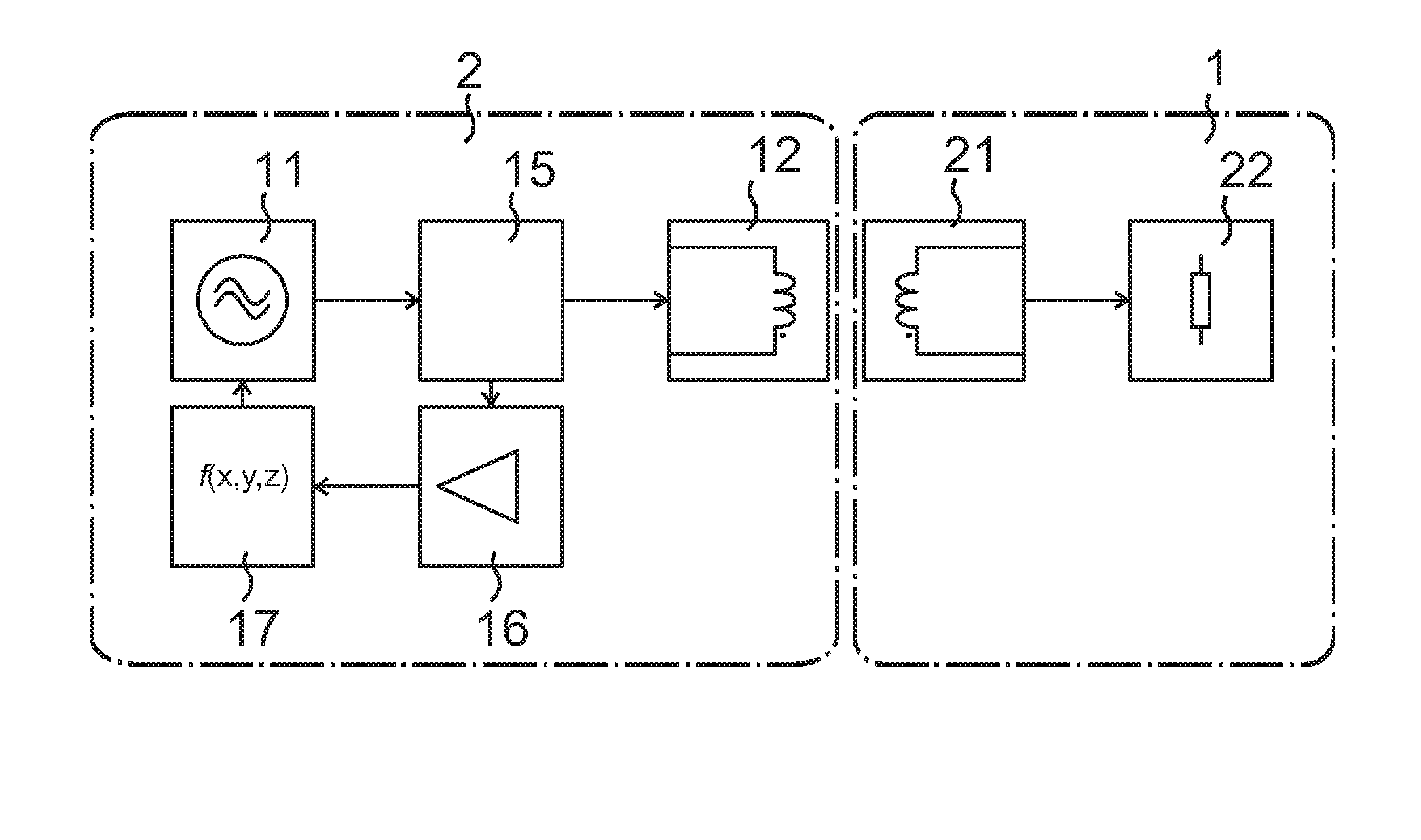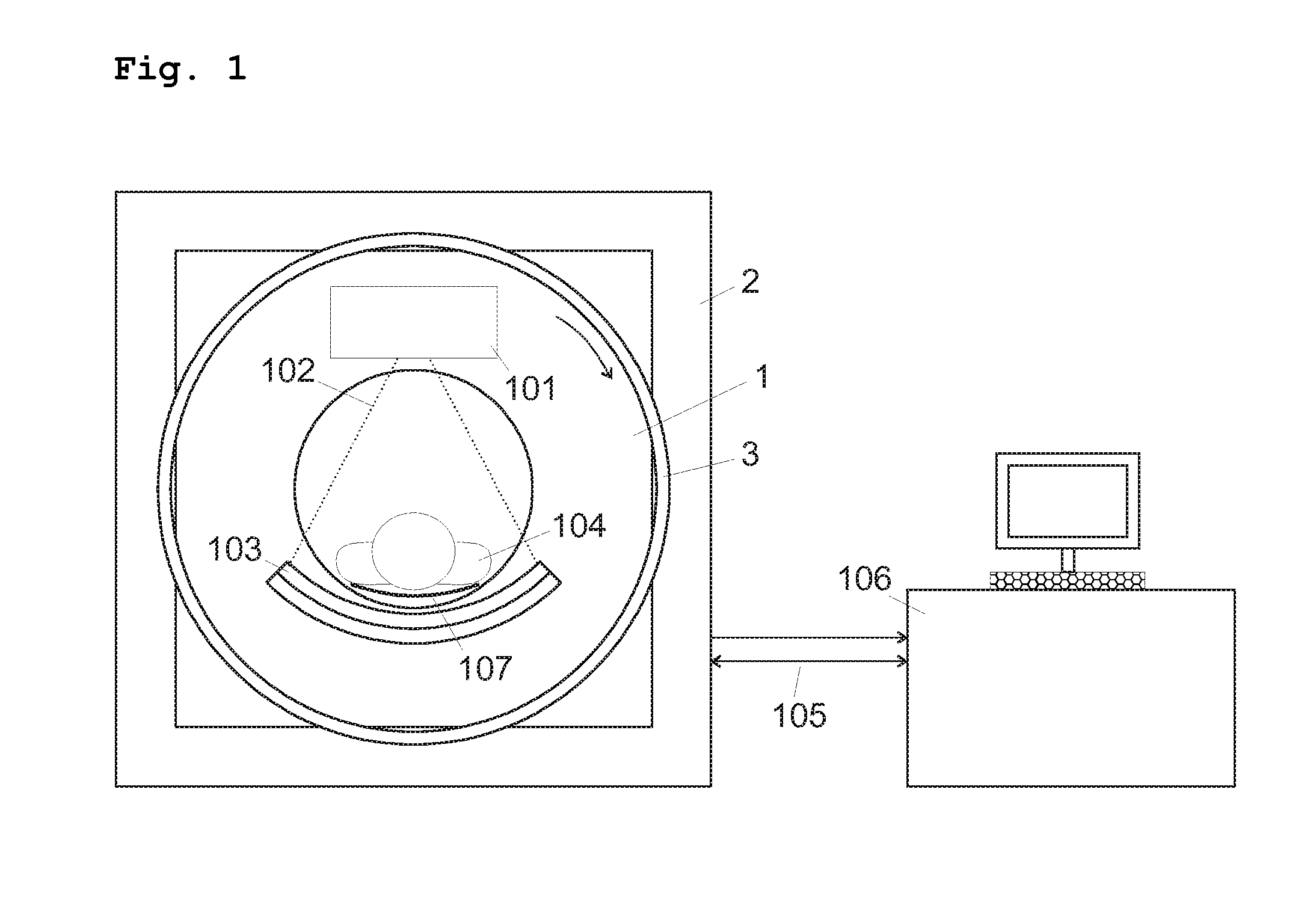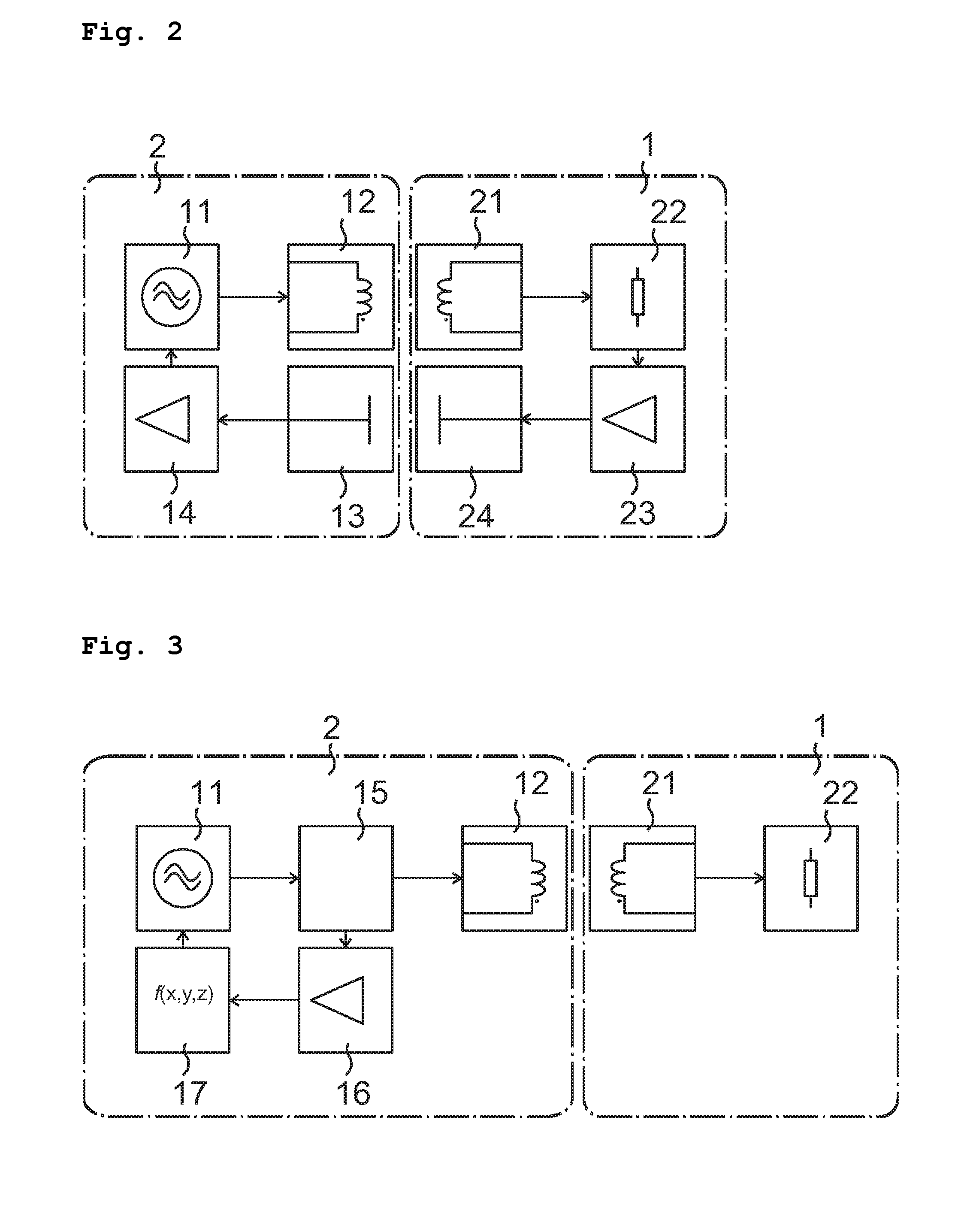Inductive Rotary Joint
a rotary joint and inductive technology, applied in the direction of ratio control, mechanical power/torque control, special data processing applications, etc., can solve the problems of requiring information from a sensor to be transmitted from the output side to the input side, and more complex filter structures may be obtained
- Summary
- Abstract
- Description
- Claims
- Application Information
AI Technical Summary
Benefits of technology
Problems solved by technology
Method used
Image
Examples
Embodiment Construction
[0021]FIG. 1 shows an embodiment of a computer tomograph (CT) scanner comprising two mechanical main parts. A stationary part 2 serves as a base and support for the entire instrument, within which a rotating part 1 revolves. A patient 104 is positioned on a berth 107 in an opening of the rotating part. An X-ray tube 101 and an oppositely positioned detector 103 are provided for scanning the patient by means of X-rays 102. The X-ray tube 101 and the detector 103 are disposed to be rotatable on the rotating part 1. A rotary joint 3 serves to provide an electrical connection between the rotating part 1 and the stationary part 2 of the CT machine. In this, high electrical power for feeding the X-ray tube 101 is transmitted in a direction towards the rotating part 1, and raw data of an image obtained by the detector 103 are simultaneously transmitted in an opposite direction. A communication of control information in both directions is provided in parallel with this. An evaluation and co...
PUM
 Login to View More
Login to View More Abstract
Description
Claims
Application Information
 Login to View More
Login to View More - R&D
- Intellectual Property
- Life Sciences
- Materials
- Tech Scout
- Unparalleled Data Quality
- Higher Quality Content
- 60% Fewer Hallucinations
Browse by: Latest US Patents, China's latest patents, Technical Efficacy Thesaurus, Application Domain, Technology Topic, Popular Technical Reports.
© 2025 PatSnap. All rights reserved.Legal|Privacy policy|Modern Slavery Act Transparency Statement|Sitemap|About US| Contact US: help@patsnap.com



